As a chilly dusk falls over a dark industrial park in Aurora, Colorado, a few figures emerge from the shadowed back doors of a large, rust-colored building. They are mostly men, walking solo or in small groups. Each clutches a large, brown envelope or a plastic garbage bag. Some wear no coats.
U.S. Immigration and Customs Enforcement (ICE) releases immigrant detainees almost every evening from a private 1,532-bed detention facility run by the Florida-based GEO Group, Inc. Even during a pandemic lockdown, detainees are released with little notice from the back doors after hours, when their lawyers’ offices are closed. Inside they had access to phones, but now they are in a strange city at night with only the long-dead cell phones they carried when they were taken into custody.
Waiting in puffing cars to keep warm, a group of volunteers springs into action as people emerge from the detention center. They approach the released detainees to ask if they need a place to stay.
“Estamos de Casa de Paz,” they say to those who speak Spanish.
Casa de Paz, run in a small, three-bedroom home nearby, is a hospitality house where legally released detainees on parole or awaiting their asylum hearings can stay for up to three days while they make arrangements to return to their families or sponsors. Representatives from the United Nations have studied Casa de Paz’s service model, which is described in a new book, The House That Love Built: Why I Opened My Door to Immigrants and How We Found Hope Beyond a Broken System (Zondervan), by founder Sarah Jackson with Scott Sawyer.
“What we’re doing is quite simple and basic, giving things that are not difficult—like a meal or donated clothing—or giving someone a ride to the airport,” Jackson says.
Members of multiple Catholic parishes in Denver participate in the Casa de Paz program, including a special ministry that visits detained immigrants every week—or did until the novel coronavirus pandemic closed visitation.
Immigrant detention in a pandemic
As many as 26,000 people nationwide were in ICE custody in June during the COVID-19 pandemic, down from around 35,000 usually held at privately contracted centers and county jails. To keep beds filled, even after the pandemic was in full swing ICE shuttled hundreds of detainees through the coast-to-coast network.
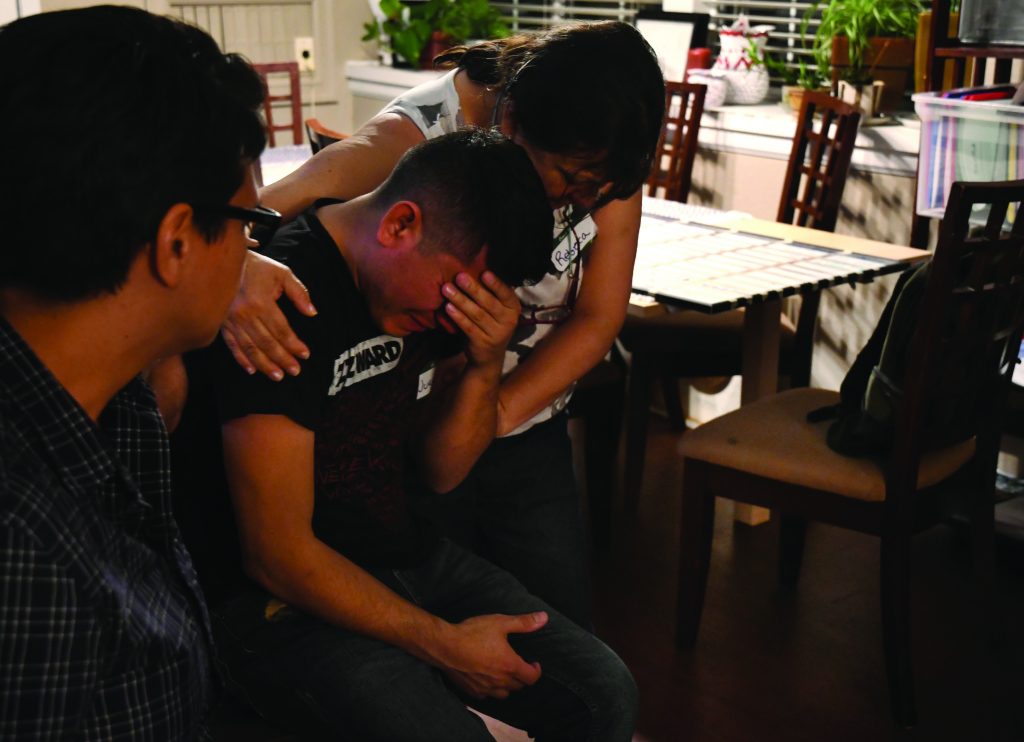
By the summer of 2020 there were more than 3,000 positive cases of COVID-19 among detainees in ICE facilities as well as 938 contractors and 45 ICE employees who tested positive. By mid-July two detainees and five contractors had died of complications after contracting COVID-19, according to a report by the U.S. House Border Security, Facilitation, and Operations Subcommittee.
Members of Congress grilled the chief executive officers of private facilities, who insisted that detainees and employees had adequate masks and other personal protective equipment. But a June report from the U.S. Department of Homeland Security’s Office of Inspector General states that facilities lacked the resources to provide social distancing, consistent mask wearing, and areas to isolate detainees who tested positive.
To reduce overcrowding during the pandemic, ICE released about 900 detainees on parole.
In July the Aurora facility reported 21 positive cases of COVID-19 among detainees, along with 12 GEO Group employees and two ICE employees. No deaths have been reported.
Holding the private contractor accountable, especially for the health care of detainees, has led to clashes between Colorado lawmakers and the GEO Group.
“We didn’t want to stand idly by,” Jackson says. “My Jewish heritage says when we witness injustices, we do something.”
U.S. Representative Jason Crow of Colorado was turned away in the spring of 2019 when he attempted to inspect the facility after reports of inadequate medical care during an outbreak of mumps and chickenpox that quarantined hundreds of detainees. Crow’s staff now demands an accountability report from the facility every week. Colorado lawmakers passed a law that state health department inspectors be allowed in the facility.
More recently in July, U.S. Representative Joe Neguse of Colorado questioned George Zoley, the chief executive officer of the GEO Group, about rumors that detainees were threatened with solitary confinement if they did not work sanitizing public areas. Other lawsuits are pending against the detention facility.
ICE declined a request by U.S. Catholic to interview GEO Group administrators.
For Casa de Paz volunteers who had been visiting detainees, the COVID-19 pandemic disrupted their connections with the people who relied on their visits.
“We didn’t want to stand idly by,” Jackson says. “My Jewish heritage says when we witness injustices, we do something.”
To respond to the virus, the program pivoted to a pen pal and phone visitation program that now reaches a dozen detention centers across the country. One volunteer started an online fundraiser that raised $4,000 to provide a $50 money order for each detainee in the program. Detainees used the funds to buy extra calling minutes or soap and supplies from the commissary.
The long waits for asylum court cases in the already overloaded immigration dockets were dragged out by at least four months as court schedules were modified for the pandemic. Detainees reported feeling fear and despair.
“They keep people here for a long time. The food that they give us is terrible,” one detainee writes in an email to U.S. Catholic. “For all the time that I have been here [18 months], the way they have been treating us is not good. They will lock us inside our dorm for the whole day.”
When asked what it was like to be detained during a pandemic, he writes, “I am not safe here. Officers come in and out of the dorms. Some may have been exposed to the virus, and I fear they will bring it here. I am especially scared because I do not breathe well. If I get the virus, I am afraid of how it will affect me because of the breathing condition I already struggle with. I am not safe.”
The hospitality house model
The safety and humanity of detainees is the top priority for volunteers at Casa de Paz. In the eight years before the pandemic, Casa de Paz welcomed more than 3,000 guests from more than 70 countries, including Cameroon, several Central American nations, Fiji, Haiti, India, Italy, Mexico, Nepal, Sudan, and Vietnam. Some guests are family members of detainees who travel hundreds of miles to visit their loved ones and need a place to stay.
Casa de Paz is not a so-called “sanctuary” home. Every guest is participating in the U.S. legal system and has the right to be moving freely, either on parole or while awaiting asylum proceedings.
Jackson, who works a day job at a software company, has big dreams for the humane treatment of released detainees across the country. She believes the hospitality house model can be replicated and fill the gap near all 200 detention centers, most of them privately contracted, in the United States.
Practicing hospitality does not mean inviting friends for dinner but welcoming strangers to the table.
Catholic parishes and other faith communities are in the perfect position to take up the challenge to “welcome the stranger, one act of love at a time,” Jackson says.
Jackson herself has a religious ancestry that includes Jewish, Greek Orthodox, and Protestant strains, but she considers Casa de Paz a Christian ministry. She takes comfort in the many Bible admonitions to care for the stranger or immigrant as a neighbor.
When asked “Who is my neighbor?” Jesus describes the Good Samaritan who found a traveler who had been beaten and injured on the road. The Samaritan, an outsider himself, took the wounded man to an inn and paid for his food and medical care (Luke 10:29–37), Jackson points out.
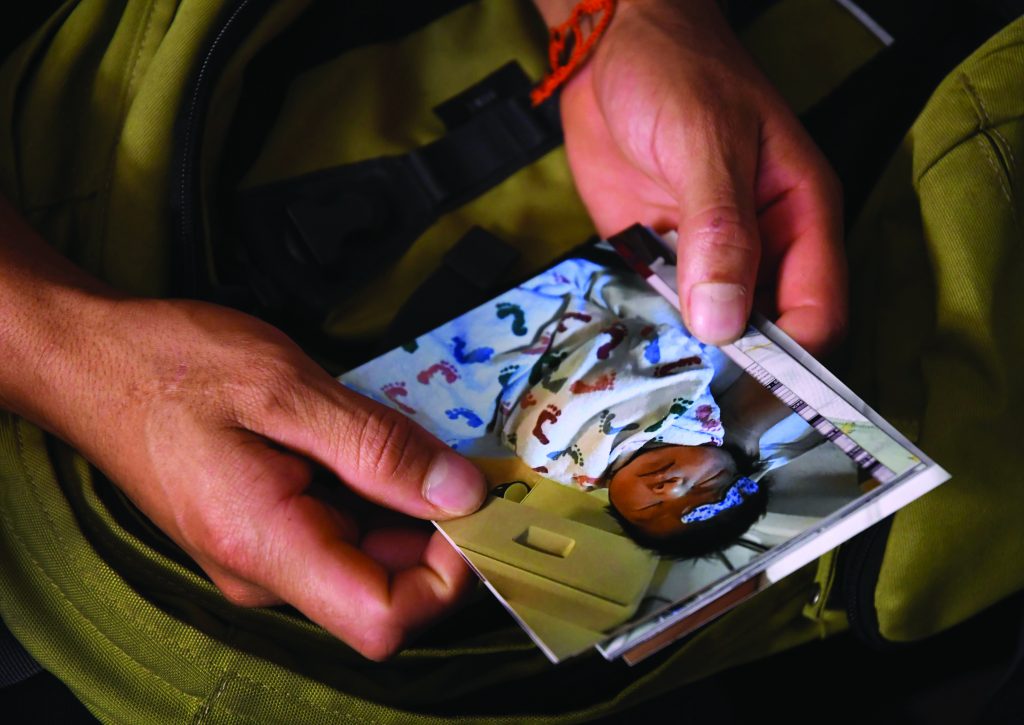
St. Paul repeatedly describes the importance of hospitality, which in Greek comes from the words philia, which means “brotherly love,” and xenos, which means “stranger” or “immigrant” (hence the word xenophobia, or “fear of strangers”). Practicing hospitality does not mean inviting friends for dinner but welcoming strangers to the table, Jackson says.
The gap in services is wide, and the need is great. Many detainees are released hundreds of miles from their families or legal counsel. An asylum seeker taken into custody at the border in Texas can end up at a private facility in Louisiana, California, or Georgia or at a county jail in rural Illinois. Some detainees are transferred a dozen times during their time in detention.
The agency has no requirement to release detainees where they were arrested. They are left on their own to make the trek to the courthouse—sometimes 1,000 miles away—where their immigration hearings are scheduled.
“It’s a logistical nightmare,” Denver-area immigration attorney Tiago Guevara says. “The government relocates you hundreds of miles from where you live, detaining you for several months so you can’t work, and then releases you essentially homeless.”
In Colorado, ICE also confiscates passports and IDs, making it difficult for detainees to pass through Transportation Security Administration checkpoints at the airport when they are trying to get home in time to meet court dates, Guevara says.
There are few hospitality homes in the United States. El Refugio, in the tiny town of Lumpkin, Georgia, hosts families of detainees in the Stewart Detention Center run by private contractor CoreCivic. The detention facility is almost two hours from the nearest airport in Atlanta, which makes it difficult for loved ones or lawyers to visit detainees.
At Casa de Paz before the pandemic, hundreds of volunteers provided a clean setting with home-cooked meals where former detainees could decompress, take a private shower, use the computer, and call loved ones to make travel arrangements back to their homes. As of September, volunteers had donated more the 424,619 frequent flyer miles to help detainees reunite with their families or sponsors.
“The Bible warns against being lukewarm. When you’re not numb, when you can feel something, you can be enraged and use that anger in a righteous way, to speak up and walk beside immigrants, demanding better treatment for all.”
Released detainees receive seasonally appropriate clean clothes to replace the clothes in which they were arrested, which can sometimes be pajamas. A new donated backpack filled with toiletries and snacks replaces the garbage bags doled out by ICE.
To help pay the bills, Jackson started Volleyball Internacional, an amateur league with dozens of teams, many made up of immigrant players. Profits from the volleyball games pay for Casa de Paz’s expenses. The league was suspended due to the pandemic but restarted later in the summer with health and safety measures in place.
Welcome Strangers, a documentary film released in February about Casa de Paz, shows how former detainees tell their stories to sympathetic ears. They shed tears as they realize they are making the transition from confinement to freedom.
For Javier, a guest from Mexico, his first night at Casa de Paz last winter was emotional. Seeking asylum in the United States to escape from violence at home, Javier points out the scars on his face and his missing teeth—evidence of the beatings he’d received before escaping from a gang attack.
“To the men who beat me, I am a dead man,” he tells volunteers. Most important was a phone call home to his wife and young son, who hadn’t heard from him in three months.
“My beautiful, beautiful wife,” he says. Catching up with his son, he tries to keep the conversation light, asking, “Do you have Ninja Turtle toys?”
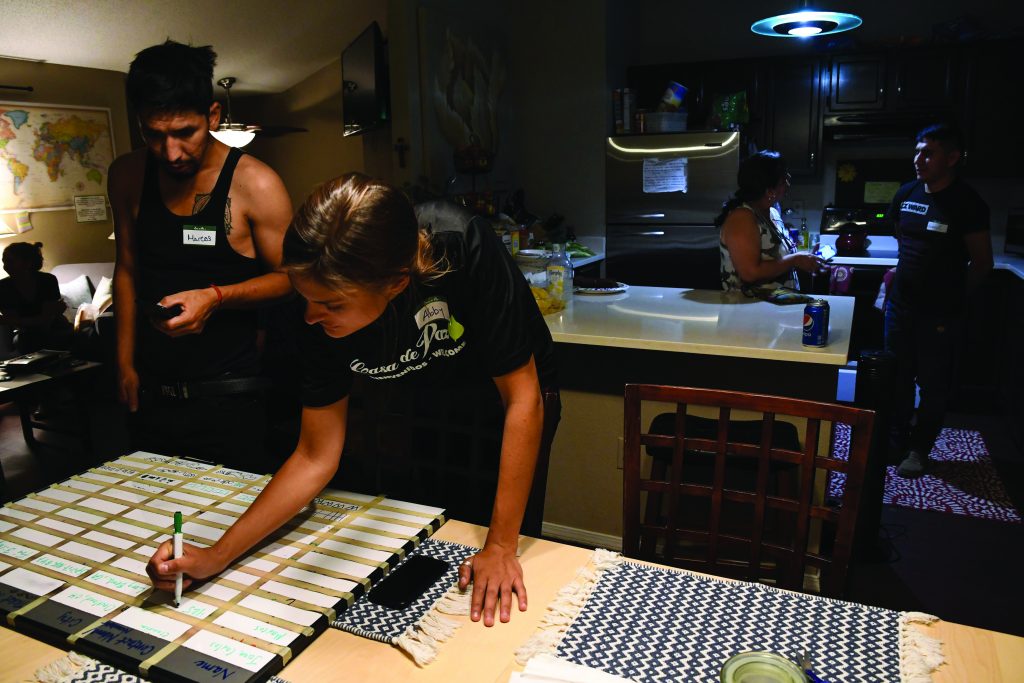
“There is this really hard balance of still living in joy when you know there is so much suffering happening,” Jackson says. “Happy is the heart that still feels pain,” she adds, quoting songwriter Ingrid Michaelson.
“The Bible warns against being lukewarm. When you’re not numb, when you can feel something, you can be enraged and use that anger in a righteous way, to speak up and walk beside immigrants, demanding better treatment for all,” Jackson says.
The toll of detention is especially hard on the people who have the most legal right to be in the United States, says Rich McLean, a member of St. Therese Catholic Church in Aurora, Colorado and a regular visitor at the GEO Group’s facility until ICE stopped visitor privileges due to COVID-19.
Detainees facing deportation often stay for only a short while. ICE says the average length of stay is 79 days at the Aurora facility. Yet those requesting asylum in the United States are often held for months, sometimes years, as their cases slowly wind through the immigration courts.
“Visiting [detainees at] the GEO Group, the main health care malady is mental health,” McLean says. “They may not be physically abused there, but it’s an emotional trauma because you have nothing to do.”
“For-profit prisons are not there as a correctional facility that might have a library and classes or activities to make life tolerable. That’s not part of their mission. They are there to keep the detainee alive, and if he comes out mentally broken, that’s not their issue.”
Before the pandemic, McLean visited regularly with James, a native of Cameroon who was finally granted asylum after nine months in detention. McLean heard the harrowing tale of how James fled for his life from Cameroon through Nigeria, finally arriving in the Western Hemisphere in Ecuador. He walked through the Central American peninsula and Mexico to the southern border of the United States, where he requested asylum.
Then began the long wait as his case crawled through immigration court. James felt trapped in limbo as months passed in the Aurora GEO Group detention facility.
“You can’t go out. There’s a really tiny interior recreation area surrounded by cinder blocks with a hole in the ceiling where you can see clouds go by. That’s your only view of the outside,” McLean says.
“Casa de Paz has probably saved lives with visitor programs because of the emotional relief of having someone from the outside who cares,” McLean says. “For-profit prisons are not there as a correctional facility that might have a library and classes or activities to make life tolerable. That’s not part of their mission. They are there to keep the detainee alive, and if he comes out mentally broken, that’s not their issue.”
Patrick Buckley, a Catholic substitute teacher in the Denver Public Schools, says federal anti- immigration rhetoric causes evident stress among the students he teaches. He found Casa de Paz while looking for concrete ways he could help.
“What I can do is show up and visit people in the detention center and maybe drive someone to the airport,” Buckley says. “I’m not in this for the gratitude. If you’re expecting to be thanked, you’re in the wrong business. Jesus sure wasn’t thanked. He got nailed to the cross.”
Immigration became a hot topic at Most Precious Blood Catholic Church in Denver after the 2016 presidential election, says Ann Zimmer, the parish’s social outreach coordinator.
Members of the parish quickly filled multiple eight-week classes offered on U.S. immigration policy. Parishioners were soon volunteering at Casa de Paz to clean, donate food and clothing, and drive guests to the airport.
In a modern-day mirror of the Good Samaritan story, one parishioner paid for a hotel room for a released detainee with health problems to make sure he was comfortable.
Casa de Paz has around 2,000 volunteers, including students and teachers from local schools and members of churches and other community groups.
How Catholics can help
For Denver Catholics, the GEO Group facility is hidden in plain sight. For members of parishes with immigrant populations, especially those from Mexico and Central America, the facility is a reminder of undocumented family members and friends who often live in “mixed-status” households with members who are U.S. citizens.
Often the only place immigrants feel safe is at church, but fellow parishioners frequently don’t know what their neighbors are going through, says Archdiocese of Denver Auxiliary Bishop Jorge Rodríguez. “It is important for Denver-area Catholics to learn to see [immigration] not as a legal issue but as a human one.”
ICE enforcement raids, deportations, and threats to end the Deferred Action for Childhood Arrivals program are bringing immigration to the forefront of public attention.
“When immigration is no longer a ‘legal versus undocumented’ or a ‘too many people’ issue, but acquires a face—the face of a father, of a child, of a woman, a human story—then we begin to understand the ‘flesh’ of the immigration issue.
Advertisement
“The best opportunity for Denver-area Catholics to understand immigration comes from sitting in the same pews, from sharing and getting to know their brothers and sisters in their parish who came as refugees and migrants,” Rodríguez says.
“When immigration is no longer a ‘legal versus undocumented’ or a ‘too many people’ issue,” he says, “but acquires a face—the face of a father, of a child, of a woman, a human story—then we begin to understand the ‘flesh’ of the immigration issue. Denver-area Catholics are able to grasp the need and urgency of that comprehensive immigration reform the church has been asking for.”
Parishes in Aurora and blue-collar neighborhoods in Denver near the GEO Group facility have hosted ice-breaking events to introduce parishioners to one another with mixed results, including a series at Ascension Catholic Parish in Denver’s Montbello neighborhood meant to introduce nonimmigrant parishioners to their immigrant neighbors.
“There’s a lot of opportunity for change,” says Jenny Kraska, executive director of the Maryland Catholic Conference, who formerly led the Colorado Catholic Conference and organized some of the events.
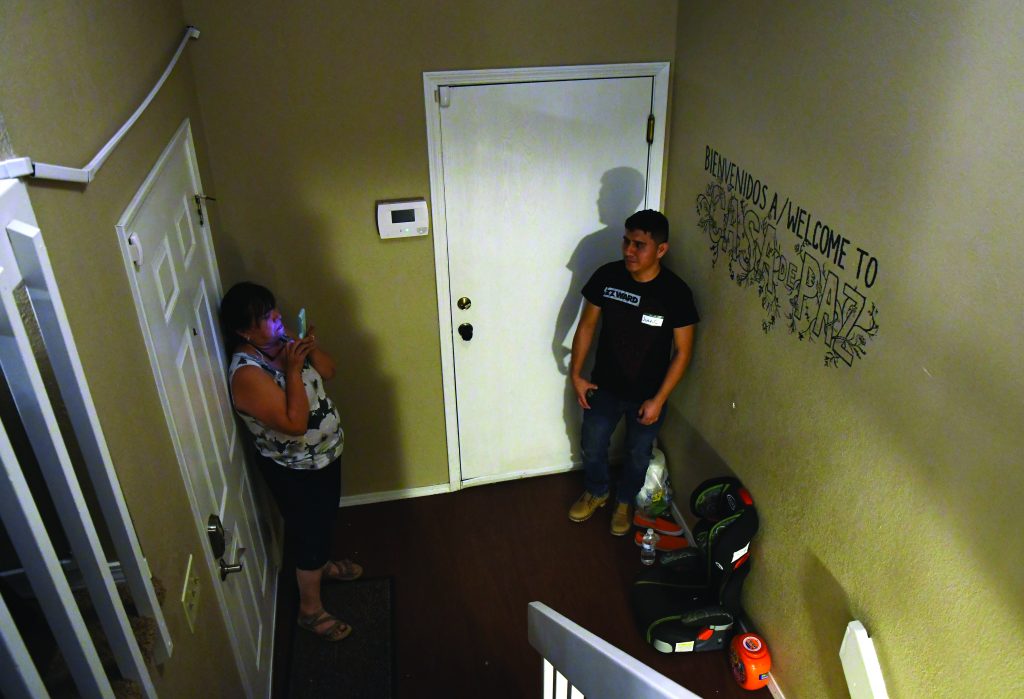
Part of the issue is recognizing that parishes can sometimes be split under two roofs without meaningful relationships between immigrant members and other members, says Leya Speasmaker, manager of the integration program at Washington, D.C.–based Catholic Legal Immigration Network, Inc. The national group provides tool kits and online resources that help integrate immigrants and native-born residents.
“Integration is a two-way street,” Speasmaker says. “When we use words like acculturation or Americanization, it puts all the responsibility on the newcomer, making it their job to learn the language, habits, and cultures of living in the United States.” But it’s everyone’s job to be inclusive, to make an effort to change.
“It’s not comfortable sometimes. It’s sometimes messy, but it’s on everyone to figure it out,” she says.
For parishes that want to encourage integration between members, Speasmaker suggests surveying each community’s needs. But more important is making sure that the parish is “sharing the power” with all subgroups. “Who has keys to the church? That’s a good way to tell if the power is being shared,” she says.
Centro San Juan Diego, the Archdiocese of Denver’s Latino/a community center, offers citizenship, English, and computer literacy classes, says Alfonso Lara, the center’s director.
The center receives daily calls for mental health referrals, especially for young people worried about the deportation of their parents. The staff doesn’t inquire about the immigration status of anyone who attends programming.
“Immigrants are usually people who rely a lot on relationships,” says Lara, who is an immigrant from Mexico. “[Centro Juan Diego staff] understands the cultural differences. Sometimes people come in and just want to talk. They say, ‘You listened, you walked with me and supported me.’ ”
Since 1974 Catholic Charities of Denver has provided free or discounted immigration legal services for Denver-area residents, including family immigration petitions, deportation defense, and help with citizenship applications, says immigration attorney Cheryl Martinez-Gloria.
Some problems are unique to Colorado, such as when citizenship applications are denied because an applicant works in the state-legal cannabis business, which is illegal at the federal level.
“In my 30 years of practice, the song remains the same,” Martinez-Gloria says. “People are coming because of economic need. They’re facing violence and wars that historically force individuals to leave their home country, either together or separately, and search for a better chance for providing for themselves and their family.”
“I’m always impressed by the repetitive resilience of this population, no matter what’s thrown at them,” Martinez-Gloria says. “No matter how negative the national policy directives become, they still want to fill out the applications and hope for the best. They are quite an amazing group of people.”
This article also appears in the November issue of U.S. Catholic (Vol. 85, No. 11, pages 28-33). Click here to subscribe to the magazine.
All Images: Colorado Sun


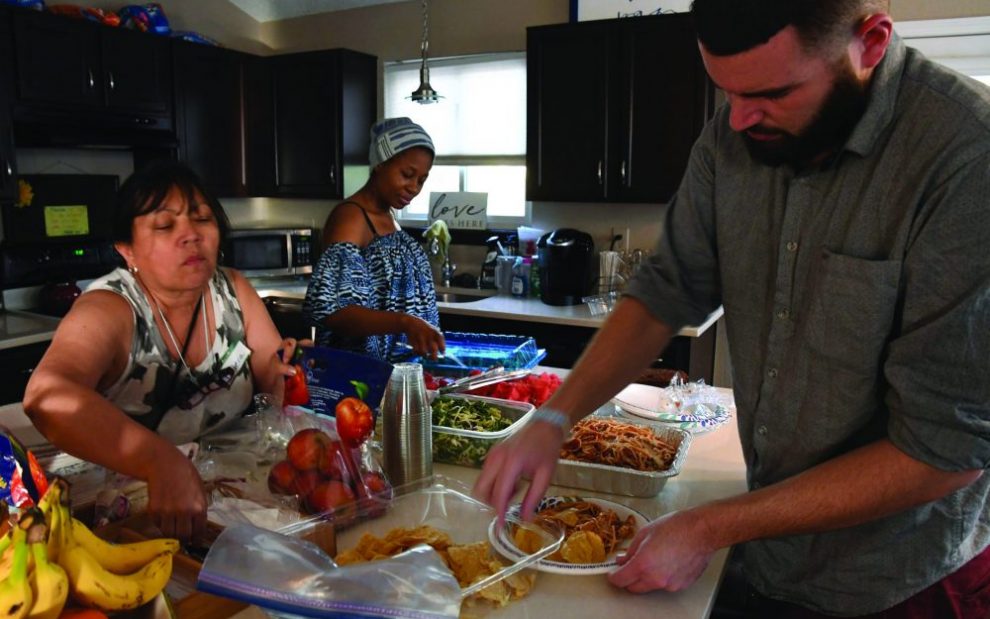


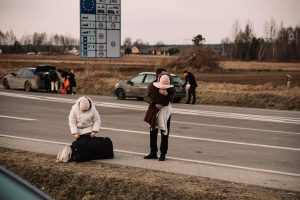








Add comment